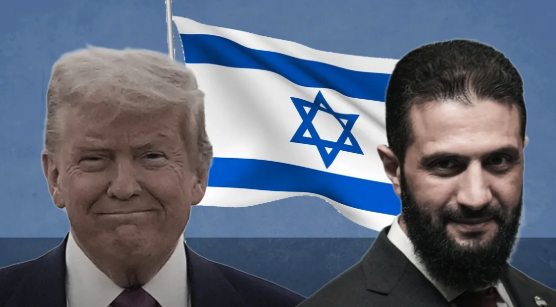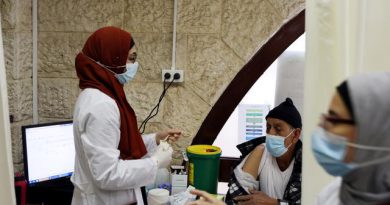Trump Ally: “Peace Between Syria and Israel? Very Possible”
Since the fall of the Assad regime, al-Sharaa has repeatedly stated that Syria does not wish to pose a threat to Israel.
In a potentially game-changing development for the Middle East, Johnnie Moore, a prominent Evangelical pastor and close ally of former U.S. President Donald Trump, has expressed optimism about the prospect of peace between Syria and Israel. Speaking to Reuters following a rare visit to Damascus, Moore stated, “Peace is very possible—perhaps even likely.”
Moore met Syrian President Ahmed al-Sharaa (also known as Abu Mohammad al-Julani) alongside Rabbi Abraham Cooper of the Simon Wiesenthal Center, a Jewish human rights organization. The delegation, focused on interfaith dialogue and humanitarian cooperation, held talks inside the Syrian presidential palace.
While the topic of Israel was not on the official agenda, Moore revealed that the possibility of peace between the two long-time adversaries came up during discussions. “The top priority,” Moore emphasized, “is that Syria focuses on Syria.” However, he noted that President al-Sharaa also acknowledged the “potential for a very positive future.”
Moore currently chairs the Global Humanitarian Foundation (GHF), which oversees aid distribution in Gaza, and also heads the Public Commission at the University of Haifa’s Religion Research Lab. He previously served as a commissioner on the U.S. Commission on International Religious Freedom.
A Quiet Shift in the Region?
According to the Reuters report, no official response has yet come from President al-Sharaa’s office. However, the tone of the visit suggests a subtle shift in Syria’s regional outlook.
Rabbi Cooper, who has previously visited Gulf states like Bahrain and the UAE before they normalized relations with Israel under the Abraham Accords, described the visit to Damascus as “a walk in the open.” He even noted that he moved freely through the streets of the Syrian capital wearing a Jewish skullcap (kippah)—a striking contrast to his experience in Saudi Arabia last year, where he was asked to remove it by an official, prompting the early end of a U.S. congressional delegation’s visit.
Cooper and Moore, both long-time advocates of Arab-Jewish interfaith dialogue, said they believe President al-Sharaa is capable of advancing peace. Moore described him as a “unicorn” in Middle Eastern politics—a rare figure who could potentially alter the course of regional dynamics.
“There’s a real window of opportunity here,” Cooper said, while cautioning, “but that doesn’t reduce the size of the task ahead.”
The duo reportedly suggested launching grassroots humanitarian initiatives to “break stereotypes and create an informal corps of goodwill ambassadors,” though they declined to elaborate on specifics.
They also met with members of Syria’s Christian community during their visit, further emphasizing the mission’s interfaith character.
Secret Syria-Israel Channel?
The backdrop to this visit is a recent report claiming that the United Arab Emirates helped establish a secret communication channel between Syria and Israel at President al-Sharaa’s request. These backchannel talks reportedly focus on intelligence-sharing and security cooperation, with the broader aim of trust-building.
According to sources cited by Reuters, Damascus sees Abu Dhabi’s Abraham Accords with Israel as a potential framework for resolving long-standing issues—particularly since Syria and Israel currently lack direct diplomatic ties.
Since the fall of the Assad regime, al-Sharaa has repeatedly stated that Syria does not wish to pose a threat to Israel. In fact, his administration has taken the unprecedented step of detaining senior Islamic Jihad figures believed to be linked to the October 7 massacre.
A letter sent last month by Syria’s Foreign Ministry to the U.S. State Department, obtained by Reuters, declared: “We will not allow Syria to become a source of threat to any country—including Israel.”
However, not all observers are convinced. Senior Israeli officials remain wary, accusing al-Sharaa of deceiving the international community. “Behind the suit and diplomatic gestures lies a dangerous vision for an Islamist regime just as threatening as the previous one,” one Israeli intelligence source warned.
Trump’s Quiet Diplomacy?
The report also noted that President Trump held a private meeting with al-Sharaa last month, though details remain undisclosed. This adds weight to the growing speculation that informal diplomacy—possibly brokered by Trump allies—could be laying the groundwork for a future peace accord between Syria and Israel.
For now, the road remains uncertain, but voices like Moore and Cooper suggest that, amid the ruins of conflict and mistrust, a new horizon may be emerging—one where Syria and Israel could chart a path toward reconciliation.



